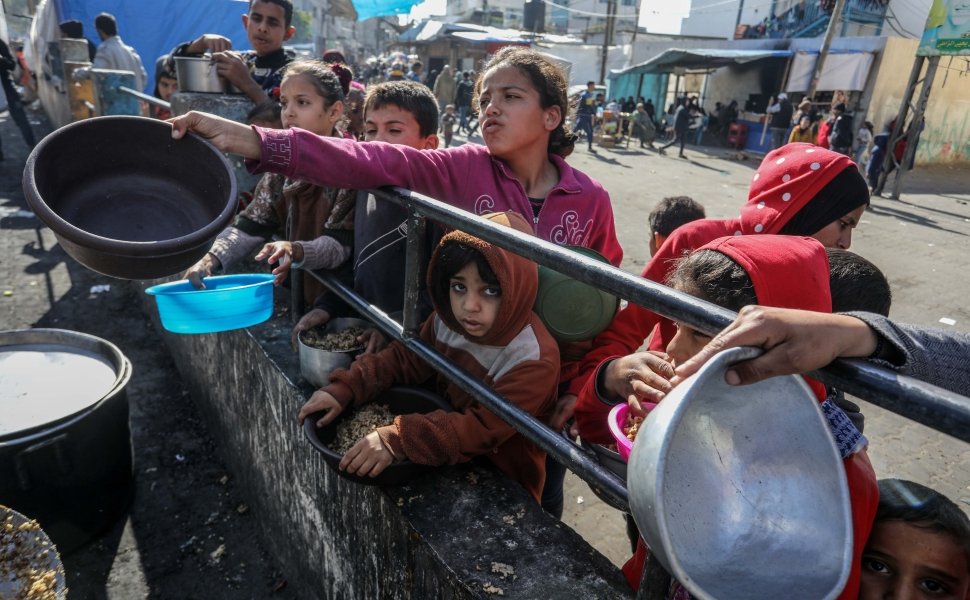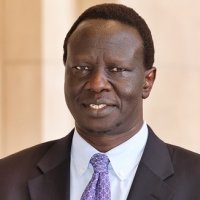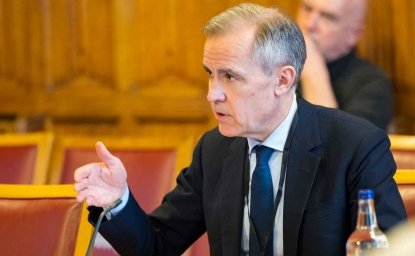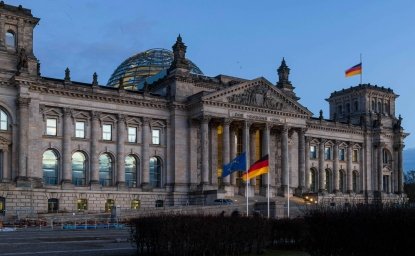This transcript has been lightly edited for clarity.
John Milewski: Welcome to the Need to Know podcast from the Wilson Center, a podcast for policymakers available to everyone. Always informative Nonpartizan and relevant. We go beyond the headlines to understand the trend lines in foreign policy.
I'm John Milweski and this is a need to know. Welcome back to another episode. Well, around the world and in the United States, stories about refugees and asylum seekers are often framed in terms of fears, negative impacts with assumptions about the burdens created by an influx of people in need. A new groundbreaking study of the U.S. economy over a 15 year period appears to turn that conventional wisdom on its head.
Here to discuss the findings of the HHS study is the director of the Wilson Center's Refugee and Forced Displacement Initiative. It's my pleasure to welcome back to the program. Jonathan Majok Jonathan, welcome. Thanks for joining us.
John Thon Majok:
Thank you, John.
JM:
So tell us about this. This study looking at the year 2005 to 2019, which uncovered an overwhelmingly positive fiscal impact. Talk about it for us, please.
JTM:
Yes, it's it's very hard to get positive news these days because of what is going on around the world. But the U.S. Department of Health and Human Services Administration, where the Office of Refugee Rettlement is located, had this groundbreaking finding study done between 2005 and 2019 to a 15 year period. And the findings are very encouraging and relevant to the current discourse on immigration as we face the southern border inflow and fears among citizens of the numbers.
So the study shows that refugees and asylees have contributed more than $123 billion to the U.S. economy and the government budget. And this is very important because this is the first federal government study and the net gain here, the net positive is that refugees have contributed more revenue in taxes than what the government any government has spent on them, whether at the local level, the state level or the federal government level.
And so I'm here to highlight this key take away from this report because they are very relevant in what we do here at the Wilson Center. The Refugees and Forced Displacement Initiative. One of the narrative on this.
JM:
I want to you say highlight, and I want to put a highlighter on that number. Again, $123.8 billion, billion dollars net fiscal benefit. When you calculate how much the government spent to get these folks resettled, this is how much money they contributed. And one of the other findings, Jonathan, it seems that the longer they stay, the more they offset the costs of that settlement or resettlement.
JTM:
That is correct. And that that, again, for the public and then for anybody out there, it is very important because as we all know, there is costs to everything we do, whether you raise a child or you put a child to school in the first 12 years of his or her is life, you put that cost there, but you hope that there is going to be a return on investment.
This report gets a light on that, that even though there are initial costs for resettling refugees and processing asylum seekers inside the United States, that cost is offset in the long term. And so this the longer you'll be, you will be in the United States as a permanent resident or a naturalized citizen, etc., etc.. Obviously, the more the positive contribution in terms of economic impact.
JM:
Were you surprised by the findings?
JTM:
I, I think the volume, the volume itself in terms of monetary number, a little bit surprising. But what I was surprised about is that this was the first federal study on this issue and the United States has been resettling refugees for years since 1980s. We have more than 3.2 million resettled in this country. So I'm surprised by the fact that this was the first study.
This, again, tell us more about the impact of a humanitarian program on the economy. There are cultural impact. The positive aspect of this, which is not to be discussed in this study, but I think that that that that's a groundbreaking indeed to see the first study.
JM:
Harder to measure some of the other things like the cultural impact. So the study just to be clear, the study focuses on those who were granted asylum or received refugee status in the U.S. after the year 1980. So this doesn't include people who came in under the radar. Is that correct?
JTM:
That is correct. And that's the sole focus here is those refugees and asylee that are helped by the Office of Refugee Resettlement in HHS. Yes. And those that came after 1980s. That is a limitation of the report. But despite this, there is this compelling evidence demonstrating the impact, the positive impact of the program domestically.
JM:
Well, one of the things it seems to suggest the implications for policy is that if you have an orderly system, you get a much more positive outcome. When there's a plan, when there's an investment in people, when there is the granting of asylum, when these things happen in an orderly fashion. So with that in mind, when you look at activity on the Hill, currently we see this GRACE Act sponsored by Senator Markey.
There have been a number of hearings in both the House and Senate. What are the implications for policymakers? I know the report is fairly new and you may not have had time to fully process this, but when you think about it in terms of activity on the Hill, what are the policy implications? What have what should we take away from this when crafting policy or creating reforms around whether it's border policy or broader policy?
JTM:
I think the implication here is that despite everything else, the narrative often thought about in four years on asylum seekers as passive victims, this net positive is the human face of the numbers. We discuss that these real human beings, once given opportunity, they contribute like us. And I think one of the finding the key takeaway there is that compared when you compare this particular group with the U.S. population, it is comparable.
You know, when they live here ten years or more. The level of contribution here is comparable with the rest of the native born here. And so the human aspect of this is these are people once given an opportunity, because, first of all, refugees are different from the general migrants, the economic migrants and refugees first seek safety and when they are safe, they can contribute.
And like economic migrants, they seek economic opportunities. And these people are running away from conflict and war that we see around the world. And so that distinction and the implication in terms of how might they contribute once we brought them through the legal process to our borders, we see they also contribute to our society.
JM:
Yeah, I mean, these are people I'm eager to start a new life because they're leaving traumatic circumstances behind. The it's not just coming to visit family. They're on the run from usually war or violence of some sort. Let me shift gears and move off the study and talk about your attendance at the Global Refugees Forum in Geneva back in December, sponsored by the U.N. High Commissioner for Refugees.
Well, this is our first chance to catch up with you since then. What are the main takeaways from the the 2023 forum?
JTM:
Yeah, before I go there and again for correction, I did not attend. I did not attend. But I again, giving my you.
JM:
You followed it closely from.
JTM:
The from the forum. Yeah. But I think that a good way to that is that what another implication for this domestic report that we're just discussing is that refugees must be engaged meaningfully on issues that affect them and as contributors, not as just storytellers. And I think when they are engaged meaningfully, given the opportunity, then they contribute productively and contribute to the global treasury, domestic Treasury and one of the key take away from the Global Refugee Forum, that is it's held every four years.
And the second one was held last year in December in Geneva. The first one was 2019 and it's part of the Global Compact on Refugees that was passed by the U.N. General Assembly in 2018. So the I want to talk about the positive aspect. The first impression is that there is an encouraging trend of meaningful participation by refugees in this kind of forum.
In 2019, there were only 72 refugee delegates attending the Global Review Forum this year. There were 300 refugee delegates attending. And even though it's still there's more need to be done, there is a recognition that refugees must be active participants on issues that affect them. So I think that one is a key takeaway. The other one is, of course, we need to walk the talk and talk the walk.
And if what we say is different from what we do, then there is a disconnect. There. So often time commitments are made in all of these countries, made commitments in terms of financial pledges, but then the delivery is a different thing. So we need to make the translate all these pledges into actions because countries that are hosting refugees are very resource straight as well.
And despite the fact that they are feeding their own citizen, these host countries have made their share in terms of the global responsibility to host a number of refugees. So that is translating commitments, financial commitment to real, meaningful action to be able to see the progress on this. Otherwise we will tend these kind of forums. And then we call it a day.
JM:
You know, talk is cheap, right? I mean, I think of when famously Lech Walesa addressed the U.S. Congress a long time ago during the Solidarity movement, and he said, let actions follow words. Now, I think you're making the same challenge here to the to the global forum. I'm sorry. Go ahead.
JTM:
Yeah. One of the other thing I mentioned is the trend here in terms of meaningful for the refugees. Yes. One of the things that happened right away was that refugees were not represented as they supposed to be because they some of them were denied visas to enter Switzerland. And that that is a concern because, again, going back to making sure our actions match what we say, if we say meaningful, it means that everybody should participate in this forum.
We should find ways to bring them through the process. If it means starting the process earlier to obtain visas, then be able to means give them special visas for them to attend this kind of forum, then be. But I think that is a barrier right now and hopefully in the next forum that will happen. 2027.
JM:
Is all the difference in the world, right? Talking with people versus talking about people.
JTM:
Correct.
JM:
Yeah. Well, Jonathan, thank you as always. You shed a lot of light on this and give us a broader perspective than the typical conventional wisdom that is attached to these issues. And I should tell our viewers and listeners that if they want more information on Rafferty, the Refugees and Forced Displacement Initiative, the program you lead, they can visit Wilson Center dot org and find out more.
Thanks again.
JTM:
Thank you, John.
JM:
So that's all for now. You know that you'll find if you come to Wilson Center dot org. More information on this podcast and many more along with valuable content from Rafferty and other programs. We hope you enjoyed this. And it was beneficial to you. I learned a lot. Until next time. For all of us at the center, I'm John Milewski, and I want to thank you for your time and your interest.











